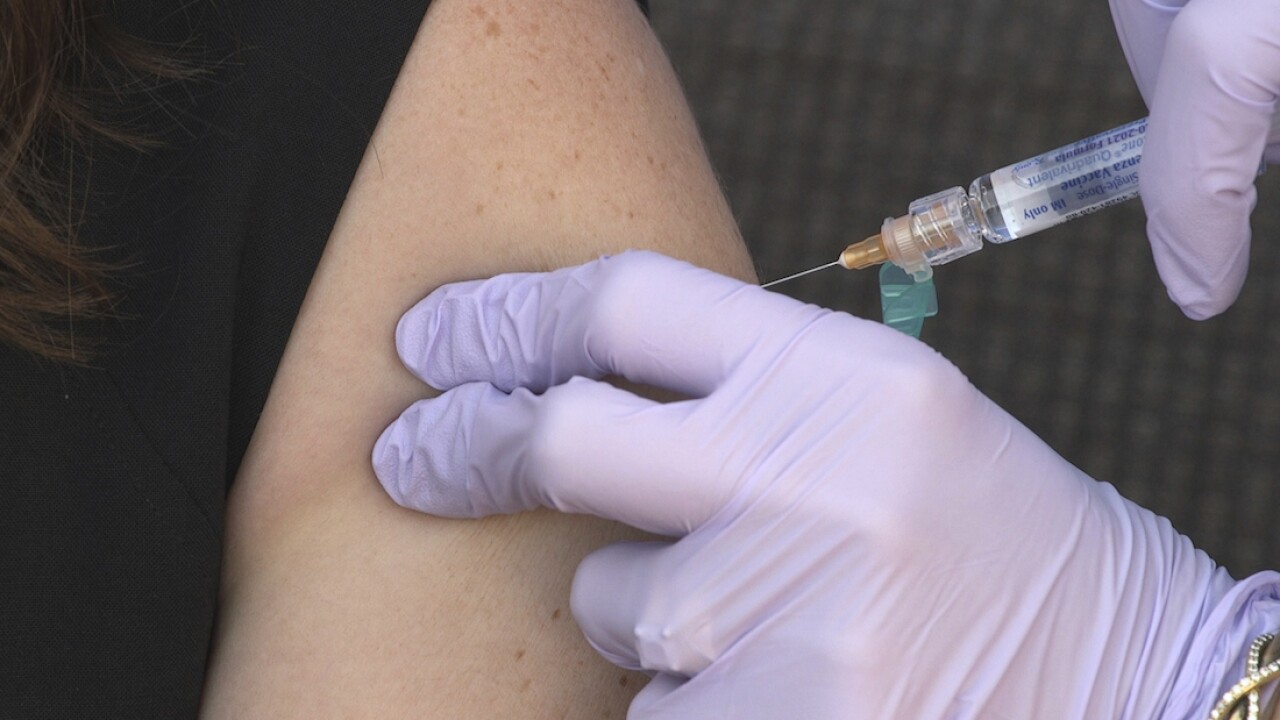KENT COUNTY, Mich. — With about two weeks until Thanksgiving, health officials are urging people to get vaccinated now so they — and their families — have protection before holiday travel and gatherings.
“Now is a great time to get vaccinated, before the holidays, before you're traveling anywhere, to protect yourself and hopefully to prevent spreading any illness,” said Mary Zimmerman, a nurse with Corewell Health. "It takes about two weeks after you're vaccinated for your body to build up good protection. So during that time, it's recognizing the virus, building up antibodies, and at two weeks, you have your best protection."

FOX 17 sat down with Zimmerman and Adam London, head of the Kent County Health Department, to discuss guidance for both COVID-19 and seasonal flu vaccines.
On COVID-19, Dr. Adam London reiterated current recommendations.

“We do continue to recommend the covid vaccine for all people six months of age and older, and that's an opinion that is shared by the vast majority of healthcare providers," he explained. "It's saved millions of lives in the past few years and prevented many more hospitalizations, including last year's, which had about 64% effectiveness in preventing hospitalizations, which is a huge number.”
Zimmerman added, "The state of Michigan has basically said that anybody not vaccinated is at high risk for covid. So if you're considered high risk, you can get the covid vaccine. [It will] be covered by all insurance plans."
Health officials also recommend the seasonal influenza vaccine for children and adults for anyone six months and older.
“I think people underestimate how severe influenza is, and that it's not just the sniffles or the stomach flu, which is completely wrong. It can be quite severe, and it can lead to pneumonia and other complications. Last year, we saw the highest number of hospitalizations here in West Michigan in 15 years statewide. We lost 14 children. We lost a couple here in Kent County,” London said.
Getting sick from the vaccine is a common misconception.
“I think a lot of people, when they get maybe a little bit of a fever, maybe a little bit of headache, body aches after their flu vaccine, they think that's the flu. That's not the flu. That's your immune response. That's your body building up those antibodies to protect you,” Zimmerman said.
Health officials compare recommended vaccines to wearing your seat belt in the car.
"Vaccines are risk reduction... They're not always a guarantee that a person's not going to get sick, but in much the same way that we, or at least most of us, wear our seat belt, and we understand that we could still get harmed driving, but we know that our risk of being severely harmed is much, much less," London said. "In a similar way, that's how vaccines work... Your probability of severe illness, hospitalization or death is much, much lower."
This story was initially reported by a journalist and has been converted to this platform with the assistance of AI. Our editorial team verifies all reporting on all platforms for fairness and accuracy.
Follow FOX 17: Facebook - X (formerly Twitter) - Instagram - YouTube












